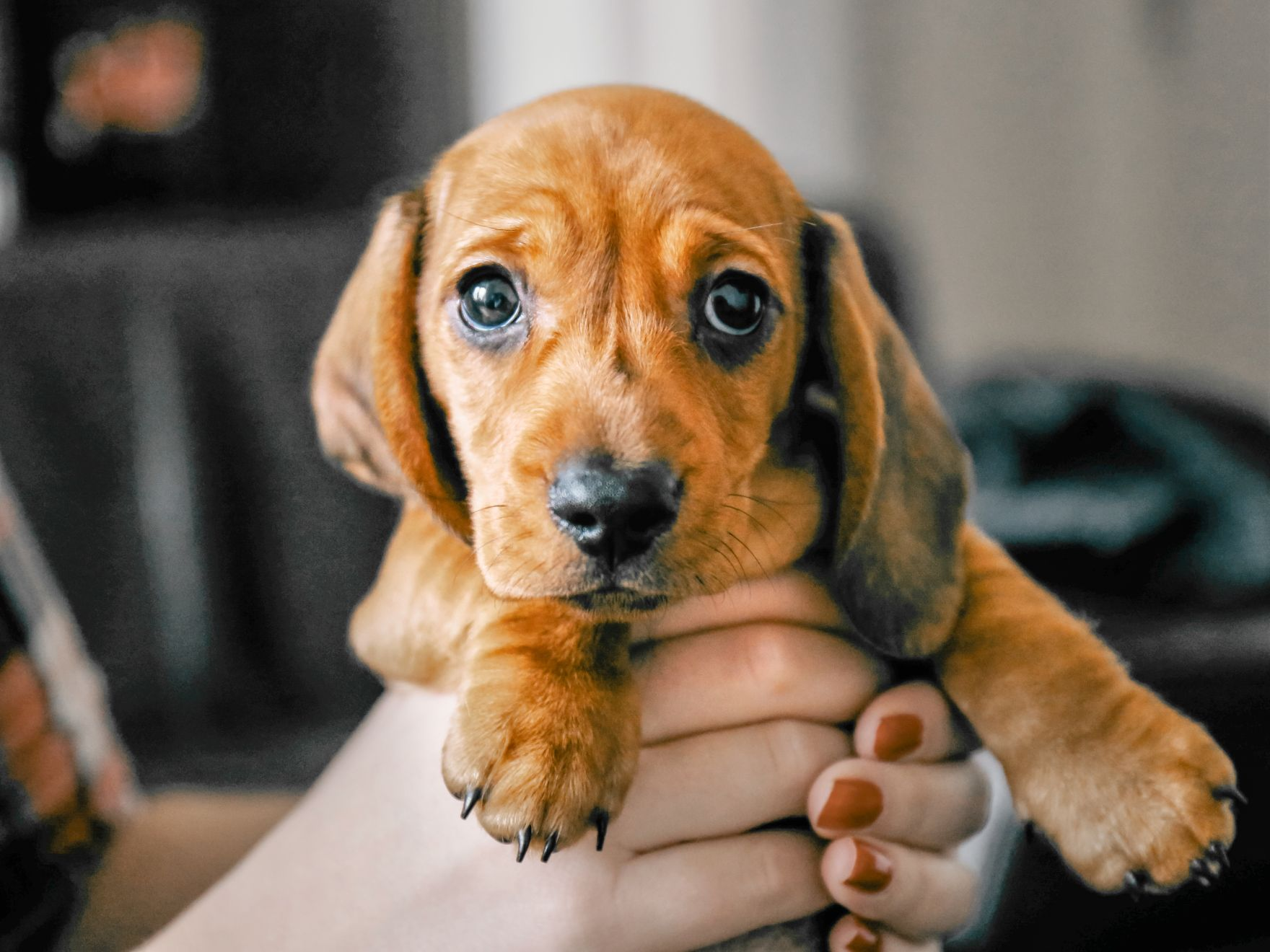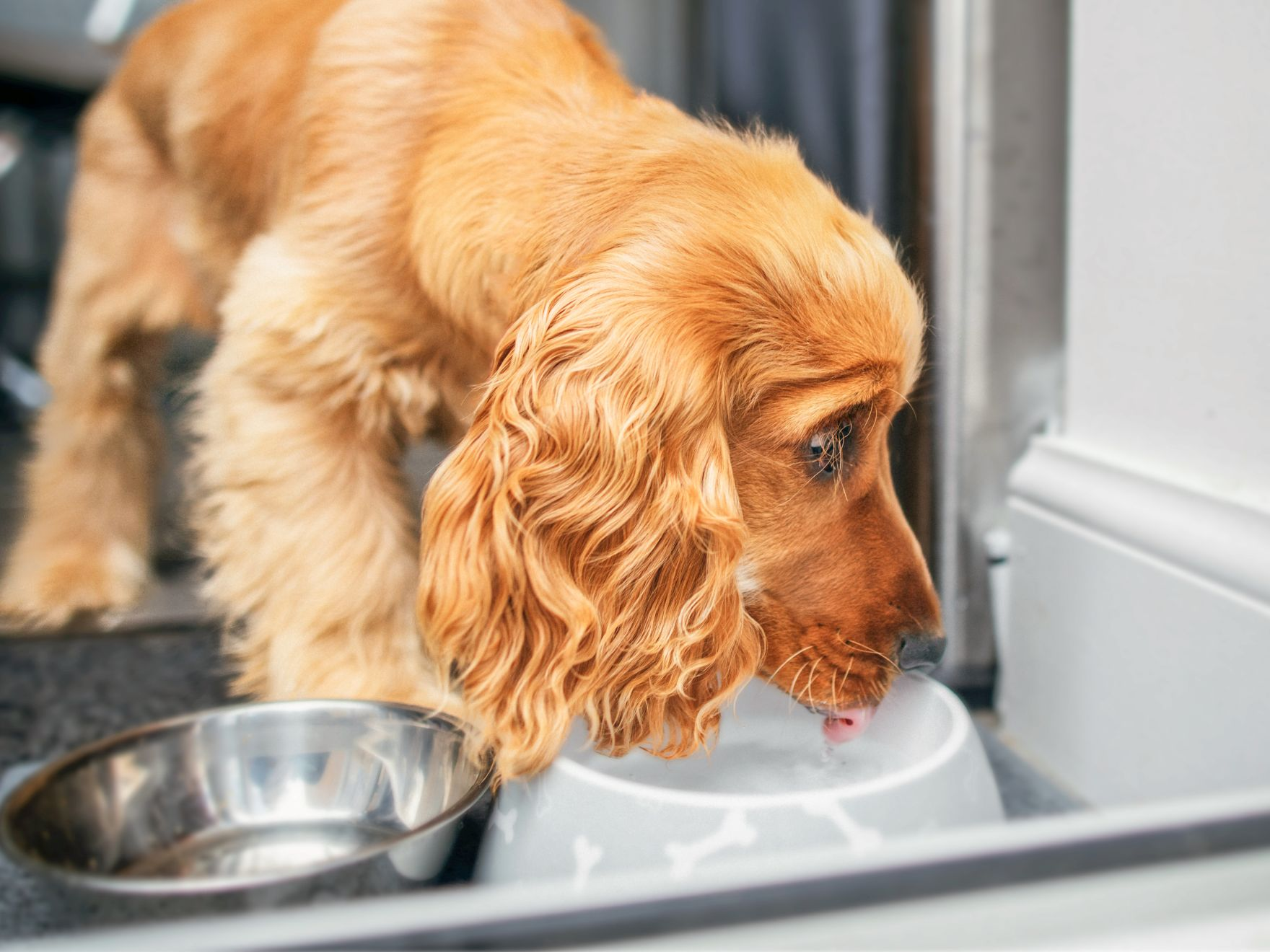New Puppy Checklist - Prepare the essentials for your Puppy's arrival
Preparing for a puppy is an exciting time indeed when you think about all the good things you will soon be sharing. However, while joy, surprises and fulfilment are just around the corner, challenges and stress might already be crawling at the back of your mind when you start thinking about all the things you need for a puppy.
We’ve prepared the puppy essentials list for you to make welcoming your new puppy a breeze! From what to buy for a puppy, to tips on puppy-proofing your house and garden and a nutrition guide, you’ll soon know what you need so both of you can settle fast and start enjoying your new life together without stress! First, let’s start with a few key things that need to be ready before you bring your new puppy home.

Your puppy’s checklist:
Now that you have an idea of the important steps you need to take before you bring home a puppy, let’s deep dive into each one. The more prepared you are, the better you will be able to create the perfect environment for your puppy to blossom, thrive and be healthy today and for life.
1 – Preparing for puppy by proofing your home
Start by creating a safe space for your new puppy so they can explore as soon as they are moving in, without risking injuries or hazards. Remember that puppies grow at an incredibly fast pace and what they can’t reach today might become accessible overnight, so it’s important to prepare every space of your home, both indoor and outdoor.
Create a stress-free environment for blooming experience. As we say, the devil is in the details so it’s now time to put your puppy “eyes” on!
Keep distractions away
Your puppy might see everything in your house as their new favourite chewing toy. It’s important to make sure treasured objects and decorative items are out of reach to avoid creating unnecessary tension or conflict. Providing specific puppy chewing toys can also help keep them distracted from your favourite shoes or ottoman.
Key points of vigilance that need your attention in your house and garden:
1.Cover electrical sockets
2.Protect or move exposed cords
3.Secure windows, balconies, and stairs
4.Put away medicinal products, chemicals, dangerous liquids and toxic plants
5.Put away any small or sharp objects
1.Repair any gaps in the fence
2.Remove poisonous plants
3.Review your garden product
4.Store garden tools away
2 - Preparing for puppy by making their new space comfortable and practical
As a new member of the household, your puppy deserves a welcoming and comfortable area specially designed for them so they can eat, rest and play peacefully.
• Create a resting space for your new puppy – A crate can be great to give them a secure base to explore from. Make sure it’s in a quiet place where they won’t be disturbed or in the way, with puppy-safe blankets and bedding to keep them warm and comfy. If you need to share your bedroom with them because of a lack of space, it’s important to give them a safe area where they can rest at other times, especially if you’re not planning on giving them full access to the bedroom during the day.
• Find the perfect place for their meals – Ideally your puppy will eat in a different place to their sleeping area and your eating area. It should be a quiet space, where their bowls can be spread out enough to avoid food or water contamination. Puppies are clever, so make sure their food is out of reach.
It should be a quiet space, where their bowls can be spread out enough to keep their water clean and the food free of water to avoid moulding.
3 - Preparing for puppy by getting the right food
As lively as they can be, puppies are still quite immature, and their digestive system is delicate and fragile. Sudden changes in dogs' diet can upset their stomach and guts and even make them wary of their food. Whilst they settle in, it’s best to feed your puppy the same food their previous owner fed them for the first few days. After that you can gradually introduce specific puppy food to support their growth and fulfil their unique needs. Learn everything you need to know about their diet today so you can feed them perfectly tomorrow and forever. Having the right diet with specific nutrients for puppies is crucial to support their health, growth and development. At each stage of growth, dogs need specific nutrients in precise quantities according to their breed and size. We recommend selecting a high-quality puppy food based on your puppy’s age and expected adult size. Also remember that adult food is not nutritionally adapted for puppies, the kibble size is not adapted for their small jaws either and may lead to choking in the worst case.
4 - Preparing for puppy by making sure everyone is ready to meet the newbie
Preparing your home and getting the right items are important, but it’s not what matters most when you start thinking of getting a dog. The commitment you and your family have to your new puppy is the key to their wellbeing. Indeed, becoming a pet owner can be really rewarding, but it’s also a great responsibility that shouldn’t be taken lightly. It takes time and money. Responsible pet ownership is key, and it encompass a wide range of duties. From daily walks, to training time and their feeding routine; everyone in the household has a part to play in the health and wellbeing of your pet during their puppyhood and well after - for life. Having a plan for all the “what ifs” is the way to go. Grooming, playing, caring for their needs, providing some affection... Everyone at home must be prepared and ready to invest time and resources caring for the newbie. This is what it takes for the invaluable joy a new puppy will bring to your home!
5 - Preparing for puppy by finding your vet
You and your vet form the perfect team to monitor, protect and enhance your puppy’s wellbeing and general health. In fact, the vet is the perfect ally to help you become a guardian of your puppy's health and wellbeing. From their first complete health check to their vaccination schedule and first emergencies, your local clinic can assist you on caring for your pet and answer all of your questions. Ready to find a vet? Use our tool to find the closest one to you.

Find the right product for your pet
Answer a few questions about your pet
Get their tailored food recommendation
Keep your pets diet always updated
Find a vet
It’s important to have identified a local vet before bringing your puppy. Find a vet near you.

Welcome home
